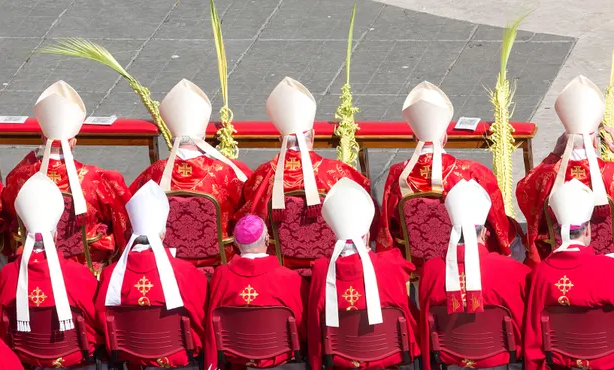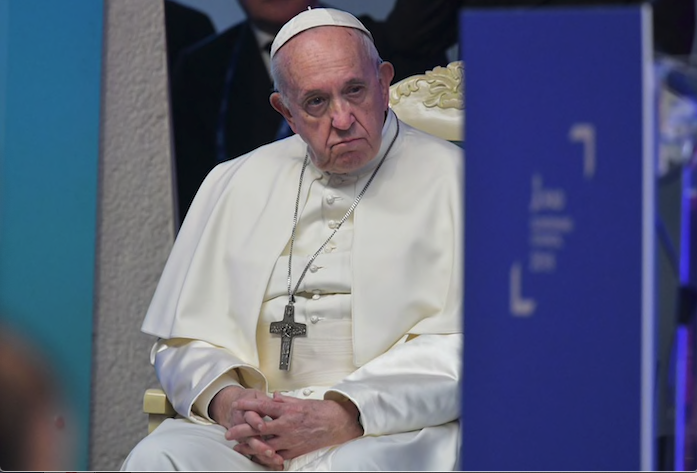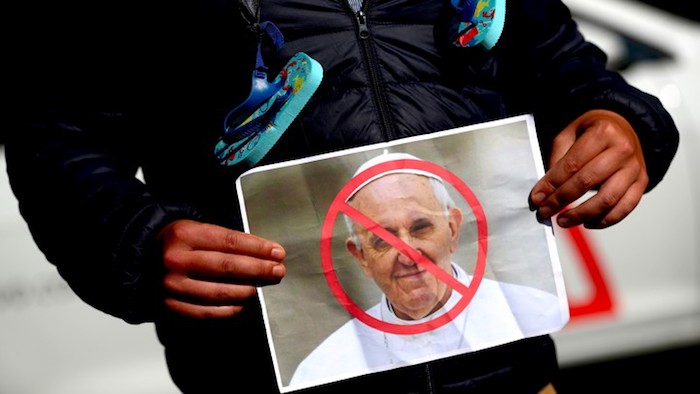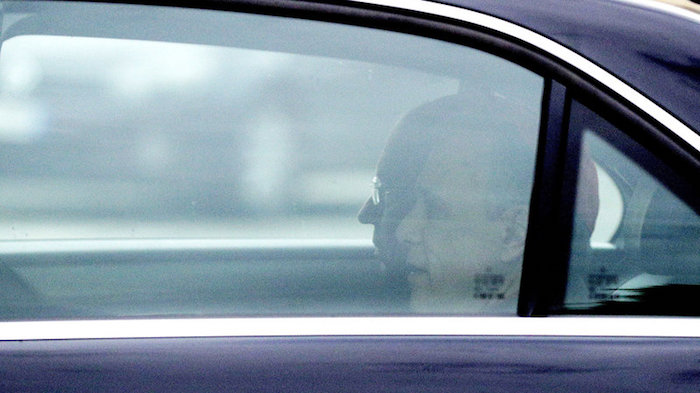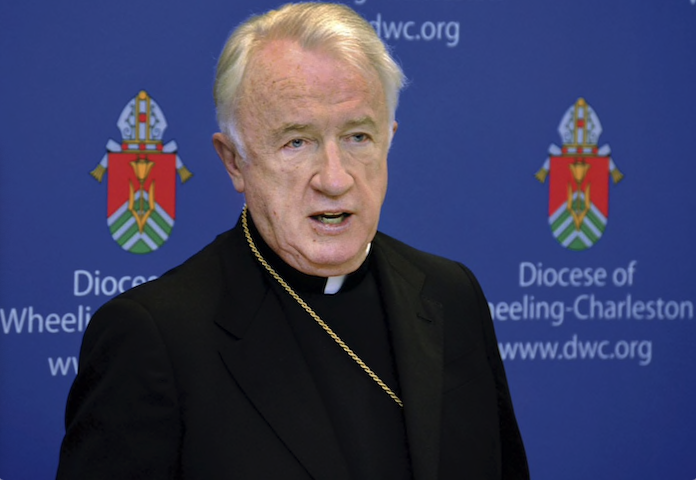
By Shawn Boburg, Robert O’Harrow Jr.
A cardinal at the Vatican and eight other Catholic clerics pledged on Friday to return money to the diocese of West Virginia after revelations that the bishop there used church funds to give cash gifts of $350,000 to fellow clergymen.
Over 13 years, until his recent ouster for alleged sexual harassment and sexual misconduct, Bishop Michael J. Bransfield wrote personal checks to clerics and was reimbursed with church money, according to a Washington Post investigation published Wednesday. Bransfield sent the checks, many for amounts in the four figures, to 137 clergymen, including two young priests he is accused of mistreating and more than a dozen cardinals.
Among those returning money is Cardinal Kevin Farrell, who said through a Vatican spokesman Friday that he would give back $29,000 that Bransfield sent for renovations to his apartment in Rome.
The checks have angered many parishioners in West Virginia, one of the poorest states in the nation. They have also raised concerns about the prevalence of clerics giving such gifts to those who hold sway over their careers, as well as about the propriety of accepting those gifts. The gifts were given during years when Bransfield was building a reputation in West Virginia for living a life of opulence and allegedly sexually harassing young priests and seminarians.
“The first thing I feel is just anger and that it suddenly makes sense why there was no ability to have accountability here,” Molly Linehan, a Catholic school administrator in Charleston, W.Va., said Friday about the cash gifts clerics received from Bransfield. “And although anger is the immediate thing, almost just as immediate is sorrow.”
Several recipients of the checks denied in interviews that the money was intended to buy their silence or pliability. Some said they received checks — described in diocese records obtained by The Post as gifts — after delivering sermons or writing speeches. Other checks marked special occasions, such as birthdays or holidays, they said.
Their decisions to return the money followed Archbishop William E. Lori’s announcement Wednesday, after receiving questions from The Post, that he would return $7,500 he had received from Bransfield.
Lori oversaw an investigation of Bransfield that was ordered by the Vatican in September after allegations of sexual misconduct surfaced. A team of lay investigators detailed their findings in a confidential draft report to Lori in February, recommending that Bransfield be removed from ministry for alleged sexual harassment and financial abuses.
Lori ordered that the names of senior clerics who received gifts — including himself — be edited out of the final report to the Vatican, The Post reported Wednesday. He said he thought inclusion of the names would be a distraction.
On Friday, Lori said he regretted that decision.
“If I had to do it over again, especially at a time when we’re trying to create greater transparency and accountability, the report would have included the names of those bishops who received gifts, including my own, with some notation that there was no evidence to suggest that those who received gifts reciprocated in any way that was inappropriate,” he said in a video statement posted to the archdiocese’s website. “Transparency also includes admitting when a mistake in judgment has been made and that is certainly the case here.”
In an interview with The Post, he said such gifts are unusual. “I don’t get a lot of gifts like that,” he said.
Several recipients said they believed Bransfield was sending his own money.
“I had absolutely no idea that he was submitting these checks to people and getting reimbursed by the diocese,” said Bishop George V. Murry of Youngstown, Ohio, who received three checks totaling $3,000 from Bransfield, money he said he would return. “I thought it was a kind thing to do. I just assumed it was from his account.”
Murry said he does not send checks to fellow clerics as gifts.
Bransfield, 75, drew on revenue from oil-rich land in Texas that had been donated to the diocese more than a century ago and that has generated annual revenue averaging nearly $15 million in recent years. Bransfield spent lavishly on chartered jets, luxury hotels, a private chef and a $4.6 million renovation to his church residence, the investigators found.
Bransfield has denied the allegations, telling The Post in a brief interview that “none of it is true” and that critics are “trying to destroy my reputation.”
It is Bransfield’s cash gifts that are raising questions about prelates outside West Virginia.
Through a spokesman, Farrell told The Post that, in addition to Bransfield’s gifts, he received “voluntary donations” from laity, priests and bishops for the renovation of his apartment in the Vatican.
Archbishop Carlo Maria Viganò — who served as the apostolic nuncio, the Vatican’s ambassador to the United States, from 2011 to 2016 — said he received checks from Bransfield and a handful of other bishops during his tenure. He described the practice as unique to the United States in his experience.
“Around the Christmas holiday, I started receiving gift checks from several bishops in the United States,” he said in an email, recalling his arrival in 2011. “I had worked in nunciatures around the world and had never seen anything like that.”
The checks were typically between $100 and $1,000, he said. Aides told him “money gifts among bishops were customary in the United States, and not accepting them would be an affront to the donors,” Viganò told The Post.
Viganò received $6,000 from Bransfield. He said he donated the money to charities shortly after he received it.
Cardinal Donald Wuerl, who the report says was given $23,600, said through a spokesman Friday that he received honoraria for speaking invitations and other events, in addition to gifts to mark personal celebrations. The biggest single gift to Wuerl — $10,000 — was for the renovation of a church in Rome, he said.
Wuerl has not said whether he intends to return the money, the spokesman said.
The spokesman did not respond to questions about whether Wuerl has given any cash gifts or received them from other clerics.
Monsignor Kevin Irwin, former longtime head of the theology department at the Catholic University of America in Washington, received $6,500 from Bransfield, according to diocese records. Irwin said Friday that the money was in exchange for writing and teaching he did and that he didn’t feel obliged to return it.
Irwin said Bransfield’s large gifts to clerics who apparently performed no service seemed out of the norm.
“I was sickened by it,” Irwin said, describing his reaction to disclosures in The Post’s report.
“Money corrupts. If you follow the money, whether in the church or out of the church, it can corrupt. A big check for doing nothing? Use it on yourself? I don’t know where that came from. Mine came from working in my office. And I’ve never been given a check for something I didn’t do.”
The Rev. Michael Weston and monsignors Walter Rossi and Vito Buonanno at the Basilica of the National Shrine of the Immaculate Conception, where Bransfield was stationed before he was sent to West Virginia, are returning $10,800 collectively, a spokeswoman said.
“Over the course of the past few years, the priests of the Basilica have received modest financial gifts from Bishop Bransfield for their assistance with diocesan pilgrimages and to celebrate significant days such as birthdays and anniversaries,” said spokeswoman Jacquelyn Hayes.
“The priests have never had cause to question the source of the funds,” she wrote in a statement. “As other clergy have pledged, the priests at the Basilica will return the personal gifts from Bishop Bransfield to the Diocese of Wheeling-Charleston, where the money can be used to serve the needs of the community.”
The most frequent recipient of checks, the Rev. Richard Mullins of the District of Columbia, said Bransfield had encouraged him to become a priest and was a longtime friend. Mullins, who received 38 checks from 2013 to 2018, said they were generally for birthdays or holidays, according to the records obtained by The Post.
“I’m deeply saddened that church funds would be used for personal activities,” he said.
Complete Article ↪HERE↩!

